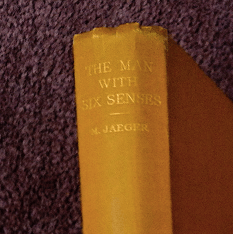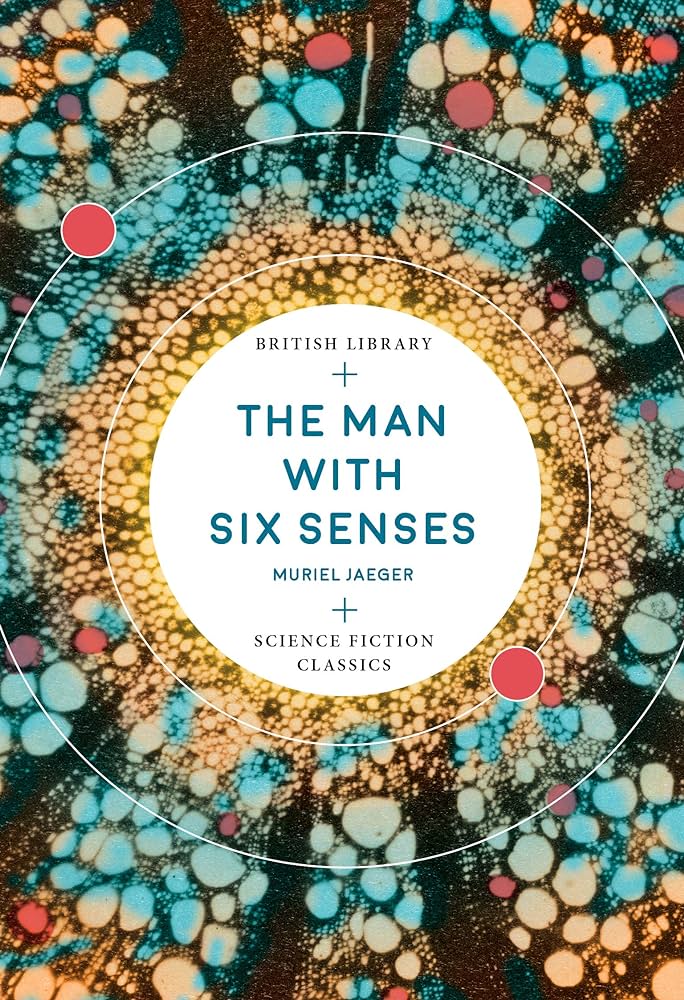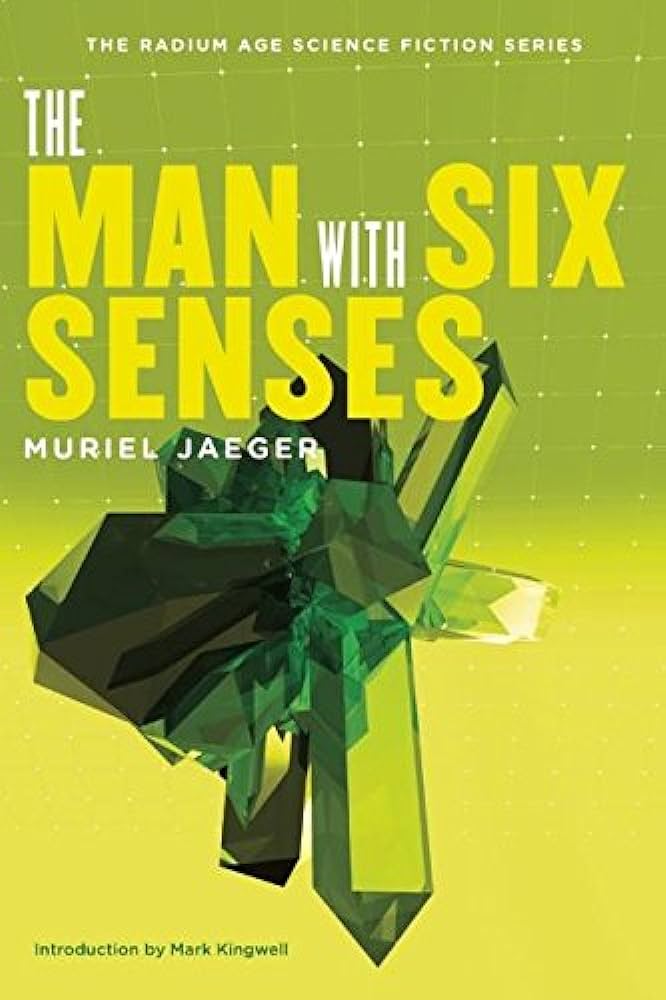SEMIOPUNK (6)
By:
October 20, 2023
An irregular, ongoing series of posts dedicated to surfacing examples (and predecessors) of the sf subgenre that HILOBROW was the first to name “semiopunk.”
BABEL (2022) | BABEL-17 (1966) | CAMP CONCENTRATION (1968) | A CANTICLE FOR LEIBOWITZ (1959) | CAT’S CRADLE (1963) | COSMONAUT KEEP (2000) | THE DIFFERENT GIRL (2013) | DOOM PATROL (1987–91) | THE EINSTEIN INTERSECTION (1967) | EMBASSYTOWN (2011) | ENGINE SUMMER (1979) | EXPLOITS AND OPINIONS OF DR. FAUSTROLL, PATAPHYSICIAN (1911) | FEERSUM ENDJINN (1994) | FLATLAND (1884) | FRIDAY (1982) | LE GARAGE HERMÉTIQUE (1976–79) | THE GLASS BEAD GAME (1943) | GLASSHOUSE (2006) | GRAVITY’S RAINBOW (1973) | THE HAMPDENSHIRE WONDER (1911) | LORD OF LIGHT (1967) | THE MAN WITH SIX SENSES (1927) | THE MOUNTAIN IN THE SEA (2022) | NINEFOX GAMBIT (2016) | ODD JOHN (1935) | PATTERN RECOGNITION (2003) | THE PLAYER OF GAMES (1988) | RIDDLEY WALKER (1980) | RODERICK (1980–83) | SNOW CRASH (1992) | THE SOFT MACHINE (1961) | SOLARIS (1961) | THE SPACE MERCHANTS (1953) | THE THREE STIGMATA OF PALMER ELDRITCH (1964) | TIME OUT OF JOINT (1959) | UBIK (1969) | VALIS (1981) | A VOYAGE TO ARCTURUS (1920) | VURT (1993) | WHITE NOISE (1985).

THE MAN WITH SIX SENSES
Who was Muriel Jaeger?
Known to her female friends as “Jim,” Jaeger (1892–1969) was a member of the Mutual Admiration Society, a writing group formed by young women at Oxford in 1912. One of these chums, Dorothy L. Sayers, would dedicate Whose Body?, her first Peter Wimsey mystery, to Jaeger. After Oxford, Jaeger would become a historian and social critic (Before Victoria). Her Radium Age proto-sf novels books include The Question Mark (1926), an ambiguous utopia that likely influenced Aldous Huxley; Hermes Speaks (1933); and Retreat From Armageddon (1936).
The Man with Six Senses (1927) is a well-written (it was published by Leonard and Virginia Woolf’s Hogarth Press) early effort to export the trope of extra-sensory perception from folklore and occult romances into the emerging sf genre — that is to say, by suggesting that a “sixth sense” is something that can be investigated and analyzed via scientific means. If today we assume thats telepathy, clairvoyance, precognition and the like – the “perceptual” paranormal powers – are inherent to sf (via telepathic spacemen characters, say), it’s thanks to Radium Age proto-sf stories like this one.
Here’s an incomplete list of Radium Age Telepaths that I wrote for io9.com back in 2009.

Here are a few notes on the plot of The Man with Six Senses.
When Hilda Torrington, a well-educated, beautiful member of England’s cynical postwar generation, meets Michael Bristowe, a sickly, socially awkward, lower-class mutant capable of perceiving the molecular composition of objects and the ever-shifting patterns of electromagnetic fields, she sees him as a possible further step on the evolutionary ladder… and becomes his apostle.
Through some mutation, or so we are led to believe, Michael is able to perceive “patterns coming and going,” “lines of energy,” and “the vast ocean of movement” – things beyond the limits of the five senses and perhaps even common understanding. Which is why I’d include this story as an example of early semiopunk: It’s about the reality of imperceptible patterns with which we are surrounded, and the effort to surface and analyze such patterns.
Like many semioticians of my acquaintance, Michael struggles to make a living via his ability. Because he can “feel” metal underground, for a while he earns a living as a kind of geologist-for-hire. However, he grows increasingly frail by exercising his powers and ultimately cannot support himself. Hilda’s efforts to convince others of the prodigy’s unique importance to humankind end disastrously; and Michael himself is destroyed — mentally and physically — by his uncanny gift. So Hilda must decide whether she is willing to make a supreme sacrifice for the sake of humankind.
Jaeger tells this story from the point of view of Ralph Standring, a successful writer somewhat older than Hilda who intends to marry her — because it has always assumed by both his family and hers that they would marry. Ralph is a stuffy Edwardian pill — he objects to Hilda’s emancipated ways. (She has a job that she enjoys, treats him as an equal, and worst of all wants to discuss his writing with him critically rather than admiringly.) Michael Dirda, writing about the book, says: “The vampirically needy Michael, the snobbish and pompous Ralph and the increasingly fanatical Hilda might have stepped out of a Strindberg closet drama — three studies in mutually inflicted torture.”
Because of this love triangle of sorts, Ralph is deeply skeptical of Hilda’s mission, and stubbornly reluctant to accept Michael’s abilities. Which is why… when he begins to believe in Michael’s abilities… it’s so persuasive to us. This is a common stratagem in Radium Age proto-sf: Provide us with a narrator or character who is stubbornly empiricist, dismissive of anything that can’t be proven via inductive scientific methodology… and then blow that person’s mind.

When Hilda does marry, she chooses Michael — because she believes that their child might carry Michael’s uncanny ability forward into a new generation. Writing for the BSFA Review, Maureen Kincaid Speller suggests that rather than all the telepathy business, this is “what makes this novel so fascinating: the crisp, sympathetic and utterly uncompromising portrayal of a young woman determinedly making her own decisions about her life, not as an act of defiance but because she does know what she wants.”
HiLoBooks — an offshoot of HILOBROW — reissued The Man with Six Senses in 2013, along with a new introduction by Mark Kingwell, professor of Philosophy at the University of Toronto. (This edition has since been taken out of print, at the request of Jaeger’s family — and the book was re-reissued a few years ago by London’s venerable British Library with an introduction by Mike Ashley, who traces the 19th-century lineage of literary telepaths.
Mark Kingwell’s introduction is here. Contra Maureen Kincaid Speller, Kingwell is primarily interested in Michael’s struggle:
But it is Michael’s irascible character, not the rather familiar amatory duel between Ralph and Hilda, that sustains our interest in this line of post-human speculation. In his suffering and anger, Michael makes the experience of extrasensory perception come painfully alive. We observe with sad recognition his vain attempts to monetize the ability, in the service of crime work or mining — the latter, significantly, quickly overtaken by technology. His everyday life is one of constant sensory bombardment, to the point where eventually he cannot stand the assault of modern London. Ralph offers a poignant reminder that sensory enhancement is a gift with a price. Imagine, he tells Hilda, if Michael had been in the War: “Five senses were too many there.”
We’ll find this trope again and again in semiopunk: The super-perceptive analyst’s relative disability to live a normal life in a world they perceive as blooming and buzzing confusion shot through with revelatory patterns.
JOSH GLENN’S *BEST ADVENTURES* LISTS: BEST 250 ADVENTURES OF THE 20TH CENTURY | 100 BEST OUGHTS ADVENTURES | 100 BEST RADIUM AGE (PROTO-)SCI-FI ADVENTURES | 100 BEST TEENS ADVENTURES | 100 BEST TWENTIES ADVENTURES | 100 BEST THIRTIES ADVENTURES | 75 BEST GOLDEN AGE SCI-FI ADVENTURES | 100 BEST FORTIES ADVENTURES | 100 BEST FIFTIES ADVENTURES | 100 BEST SIXTIES ADVENTURES | 75 BEST NEW WAVE SCI FI ADVENTURES | 100 BEST SEVENTIES ADVENTURES | 100 BEST EIGHTIES ADVENTURES | 75 BEST DIAMOND AGE SCI-FI ADVENTURES | 100 BEST NINETIES ADVENTURES | 75 BEST HADRON AGE SCI-FI ADVENTURES.
